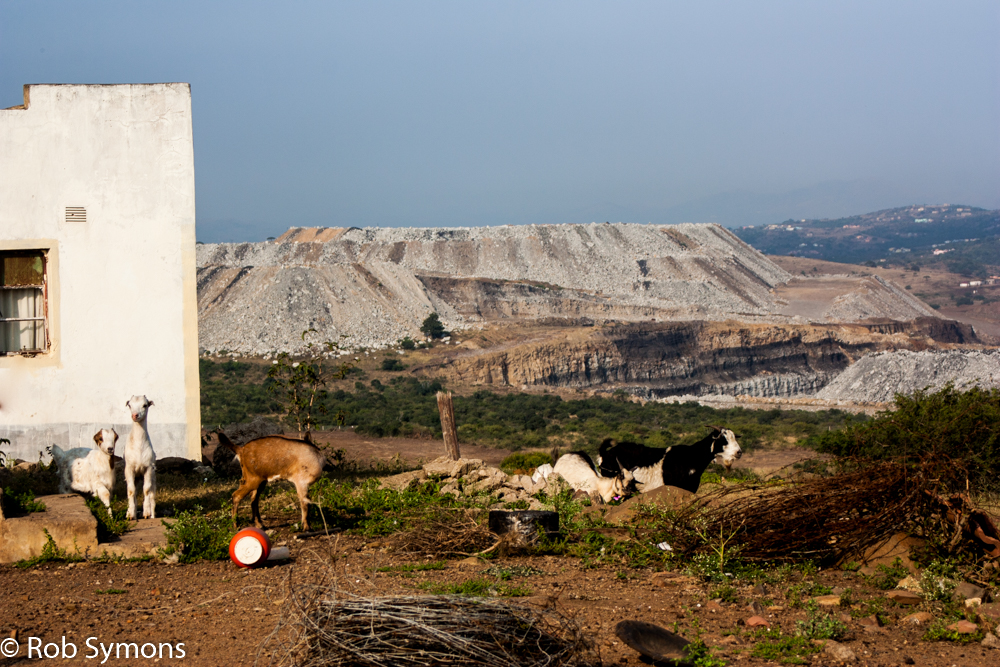
Watchdog challenges ruling that it says will allow mining companies to disregard green legislation
By Tony Carnie
An environmental watchdog has challenged a legal decision by a Pietermaritzburg high court judge, fearing that his ruling will encourage mining companies to disregard the country’s environmental protection laws.
The challenge has been mounted by the Cape Town-based Centre for Environmental Rights, after judge Rishi Seegobin dismissed an application in October to shut down the Somkhele coal mine — owned by Johannesburg-based Tendele Mining — on the periphery of the flagship Hluhluwe-Imfolozi Game Reserve in KwaZulu-Natal.
The centre has lodged an application to intervene as an amicus curiae (friend of the court) in an application for leave to appeal against Seegobin’s ruling.
The centre, represented by attorney Catherine Horsfield, said it was concerned that the ruling “may open the door” to companies disregarding environmental safeguards in the constitution.
The centre believes the Tendele verdict has broad national implications and could have a “profound influence” on the ability of government inspectors to monitor and enforce environmental laws in mining areas.
It could also provide “an excuse” for companies to operate outside the law and to strip legal powers from government enforcement officers.
The ruling may open the door to companies disregarding environmental safeguards …
The centre also said the judge’s punitive costs order against two community-based environmental groups would have a “chilling” legal effect that could cow other vulnerable people from mounting public-interest litigation against powerful mining companies.
In 2018, the Global Environmental Trust, the Mfolozi Community Environmental Justice Organisation and local resident Sabelo Dladla launched an interdict application against mine owners Tendele Mining, arguing that the mine was operating illegally.
Represented by attorney Kirsten Youens, they submitted that the Somkhele mine was operating with no environmental authorisation, no municipal planning approval, no waste disposal licence and no permits to shift ancestral graves.
Dladla also alleged in court papers that several homestead structures were cracking because of daily dynamite blasting at the open-pit coal mine, and several of his livestock had died or disappeared after wandering into mining land that had not been fenced off adequately.
Life had changed forever, said Dladla, with many local residents forced to leave their land and homes to make way for mining. They had lost access to grazing for cattle and other natural resources, and were also worried about the risks to their health from polluted air and water.
The mine painted a different story in court papers, denying that its operations were unlawful and arguing that nearly 1,000 mineworkers would lose their jobs if the mine was forced to close.
Seegobin threw out the application, noting that there had been a number of amendments to mining and environmental laws that took effect in 2014. He said these changes to the law also contained transitional provisions which permitted companies to continue existing operations without obtaining fresh environmental authorisation for listed activities.
If the amended laws did not contain these transitional provisions, said Seegobin, previously lawful mining operations would have been rendered illegal, overnight. “This would have been an unreasonable, insensible and un-businesslike result,” he commented.
Seegobin also suggested that senior officials of the departments of mineral resources and environmental affairs would have intervened against Tendele if they believed the mine was operating unlawfully or causing significant pollution or environmental damage.
Horsfield said the centre recognised that judges had discretion to award cost orders, but the National Environmental Management Act included a clause intended to protect people who sought assistance from the court, provided that they were acting reasonably, in the public interest or in the interests of the environment.
During a landmark public interest case involving the Biowatch Trust and the multinational group Monsanto, the Constitutional Court had reaffirmed the principle of not punishing unsuccessful litigants with crippling legal costs, provided their cases were not “frivolous, vexatious or manifestly inappropriate”.
Horsfield also attacked Seegobin’s assertion that government officials would have taken action against Tendele if they believed the company was contravening environmental obligations. There was no basis to assume that government officials were satisfied with, or had even considered the issues taking place at Somkhele mine.
Seegobin’s approach seemed “tantamount to introducing a standard of deference to functionaries” in the mining and environment departments that was not supported by law.
Responding in court papers, Tendele CEO Jan du Preez said his company did not agree with the legal arguments opposing Seegobin’s main ruling, but would not object to the centre being admitted as a friend of the court — provided it did not try to introduce new evidence.
Du Preez said his company would abandon all claims to the money awarded to it by Seegobin for legal costs.
“I hereby confirm that Tendele unconditionally abandons the costs order granted in its favour by this court…. The issue of the costs order granted in Tendele’s favour need accordingly not feature either in the amicus application, or in the application for leave to appeal,” the company said.
Seegobin has yet to make a ruling on whether he will grant leave to appeal.
This article also appeared in Business Day and Times Select on 28 March,2019.
